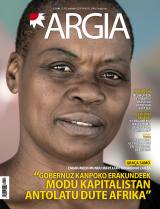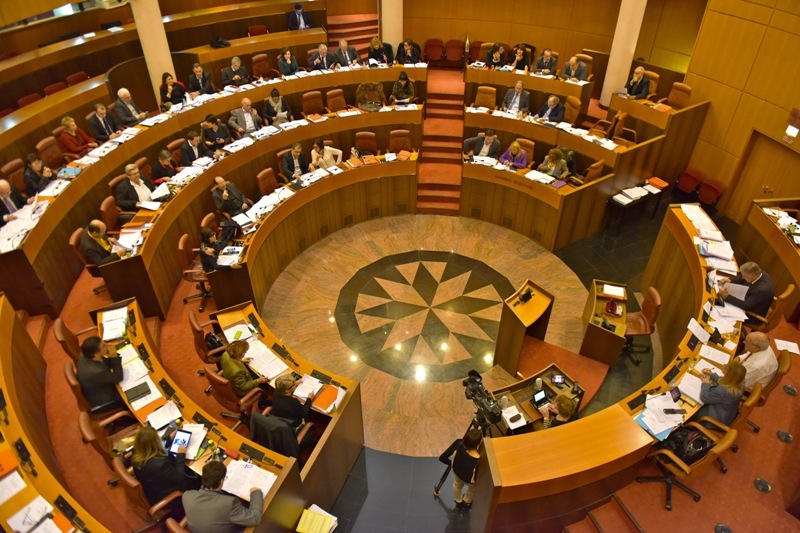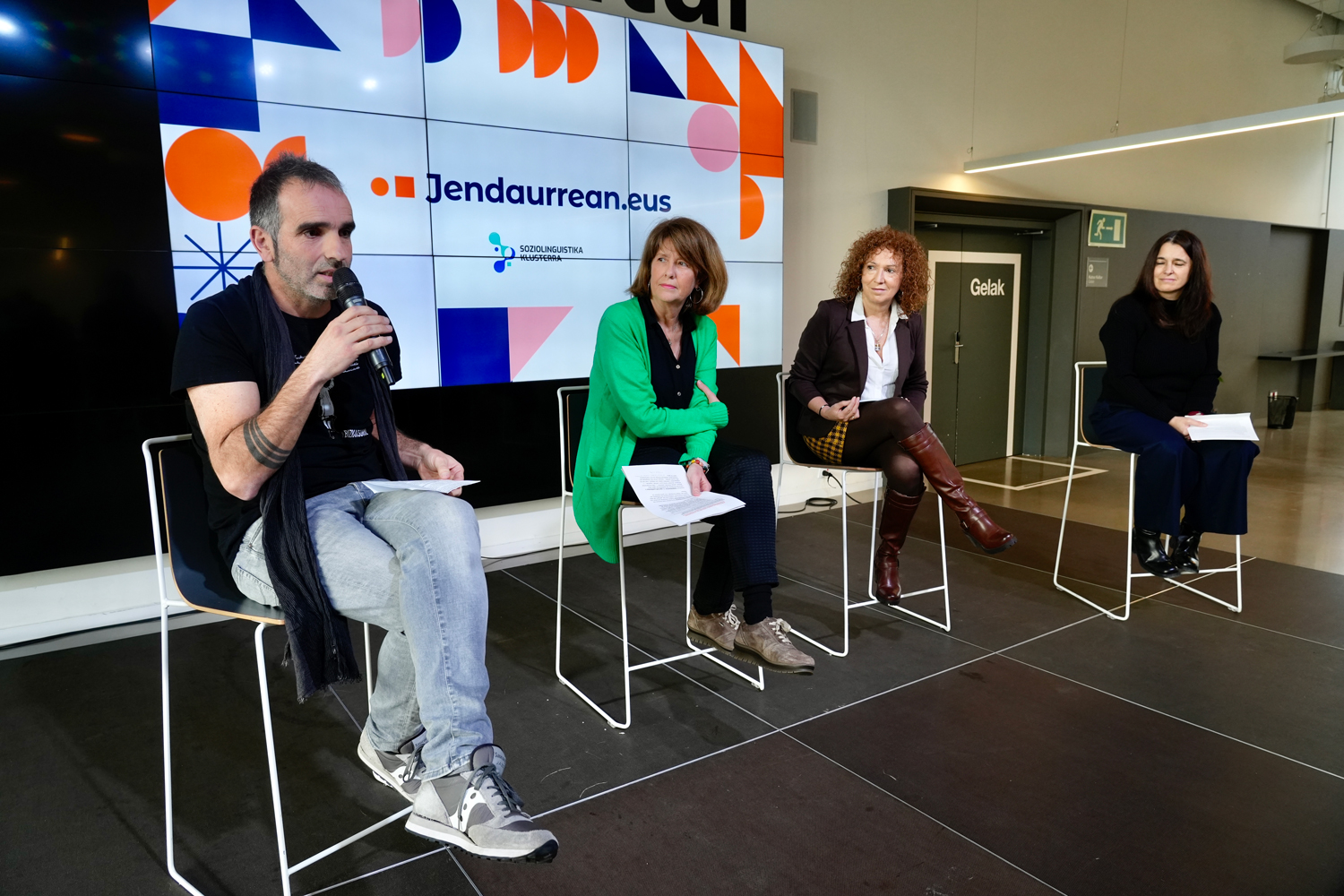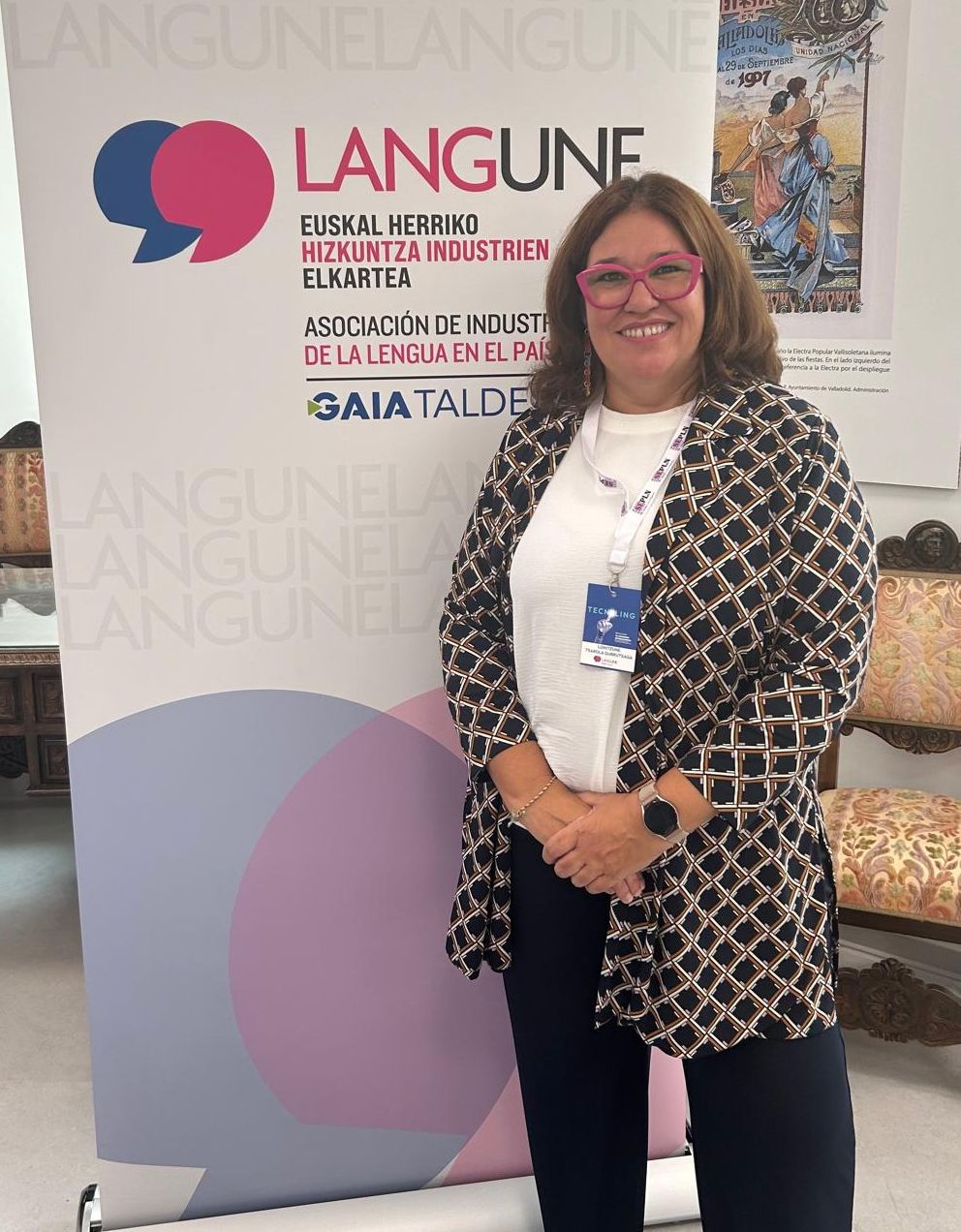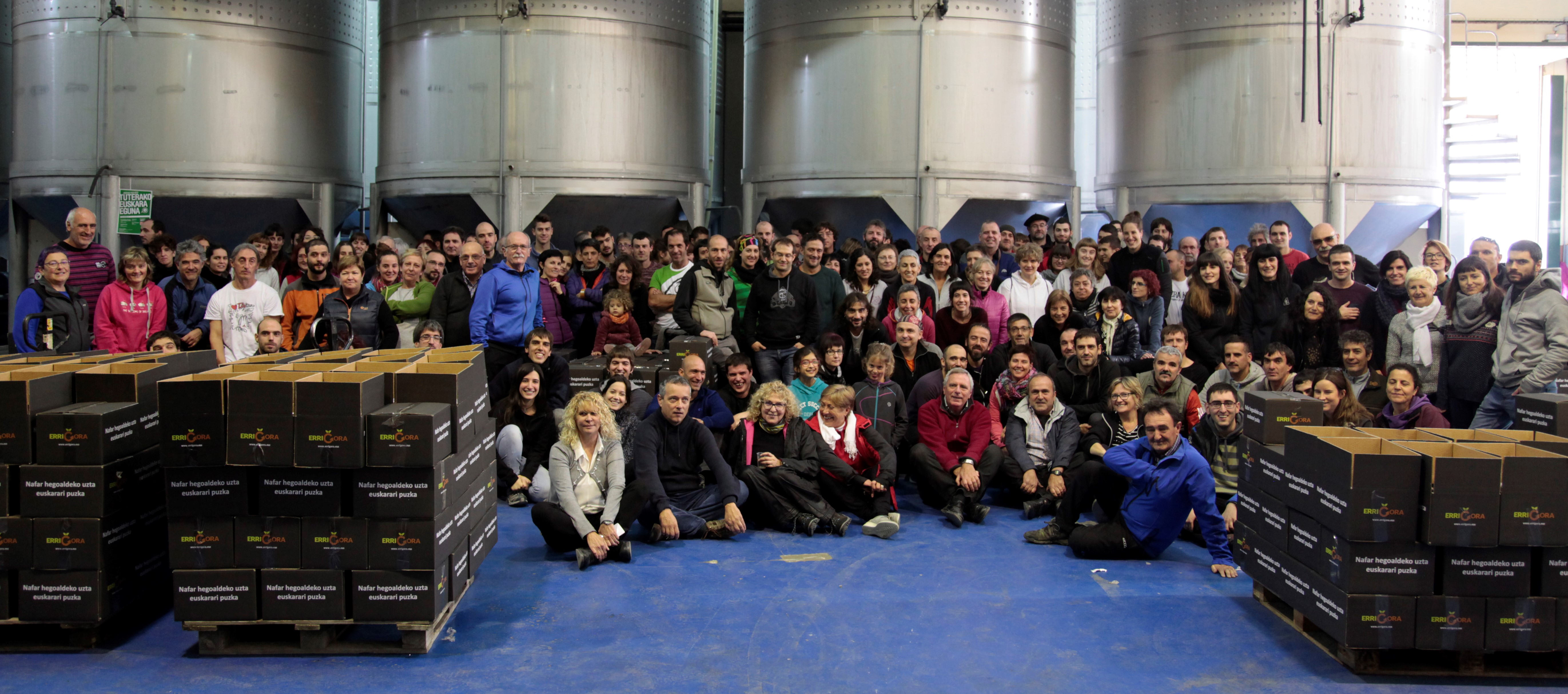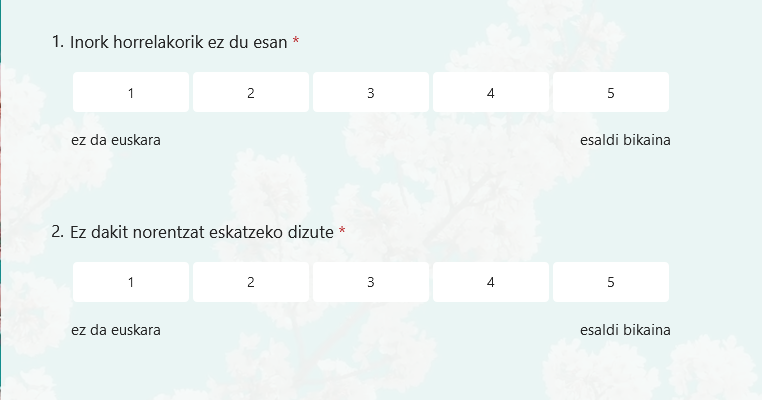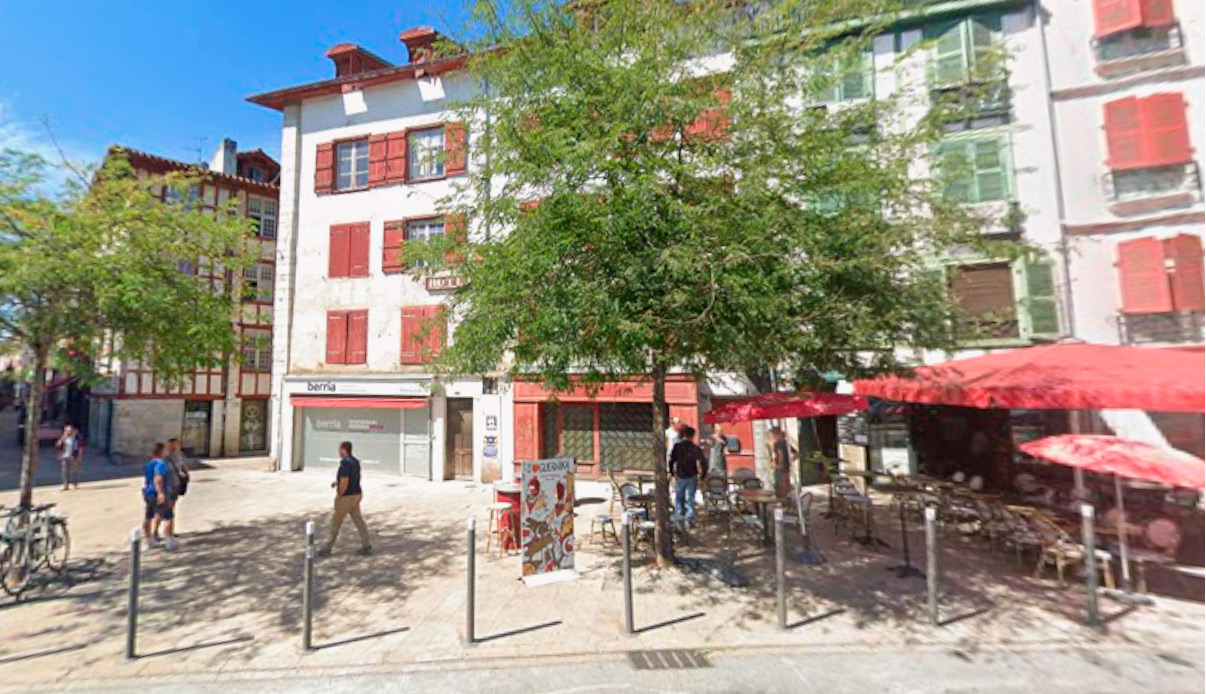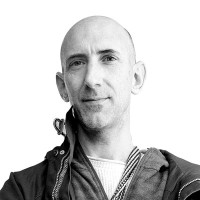If you cannot learn Basque, how can you learn Basque doctors?
- In the act of medical graduation, the student said aloud: We are in the field of Medicine in Basque, but we cannot learn Basque, and we want to be Basque doctors. On the campus of Leioa, they have been working for the first three years, in Basque. In the second cycle, however. The Linguistic Plan states that, at the end of this year, all compulsory subjects must be taught in Basque. In the best case, at the University Hospital Donostia, 71% of the subjects are in Euskera, in the worst case in Vitoria-Gasteiz, 0%.
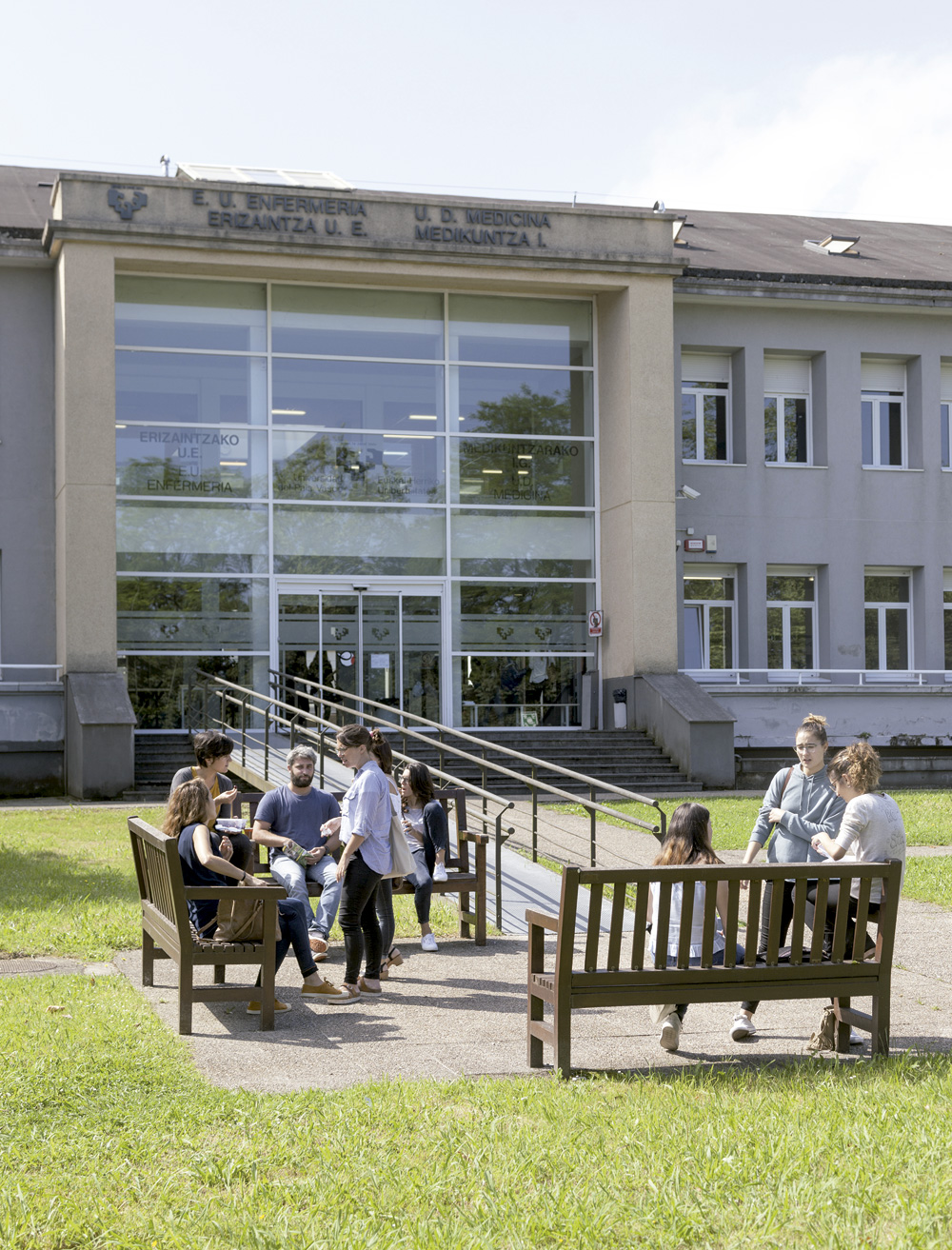
There is a lot of difference, that is, it is not the same to study three years of Medicine on the Leioa campus of the UPV/EHU to attend the next three in one of the four university hospitals. In Leioa, students who have enrolled in the branch of Euskera can learn Basque. In the second cycle they study in hospitals. Surely, students will be thrilled with medical heels. Except for Donostia-San Sebastian, in their workplaces (Txagorritxu, Basurto and Cruces), the atmosphere is Castellanoparlante and students pay the bill.
Why medicine cannot be learned in Basque, it cannot be explained in two sentences. There are many factors. In the following lines we will give the main keys.
Fear of the disappearance of the branch in Basque
María Fuentes Rodríguez is finishing the 3rd division. He speaks to us as a member of the Medical Assembly. He says enrollment in Basque goes down. The former Decanato told them that if it were to continue to go down, instead of two groups, only one would be in Basque. They see the line in Euskera in jeopardy: “We have a lot of demographic pressure, anyone in the Spanish state can get a place in the UPV/EHU, they eat us and there are not a certain number of places in Euskera. If 300 students are to be welcomed, for example, why not keep 150 in Euskera?” She knows what she says: The UPV/EHU depends on the Spanish state and the degree of Medicine in Euskera cannot be studied. Fuentes has acknowledged that there are students who choose to study selectivity in Spanish. The student is aware that the second course of Medicine will be carried out largely in Spanish, also in Spanish the MIR exam (Resident Internal Physician) and in the workplace, also in Osakidetza. “If it is up to the deanship to promote enrollment in Euskera, but there is no strategy for it.”
Itziar San Martín is the new vice-dean of Euskera and Plurilingualism. Jon Zarate has been in the Vicerrectorate of the Basque Country for two years. In his opinion, enrollment in Basque is not going to go down. According to their data, in the last five years the average has been 111 students (about 280), with a maximum of 119 and a minimum of 100. San Martín believes that students think 100% and fear that they will lose a group: “We told them we are not going to remove a group. There is positive discrimination, even if there were 95 students, we would do everything we could to get two groups out.” We asked him about the registration of the San Martin Euskaldunes in the Spanish line. In their opinion, they are mistaken in their opinion. Learning Euskera is not a disadvantage, although then continue learning in Spanish: “Spanish and English will continue to be used and will learn terminology. The Basque language is no longer learned. We intend to promote enrollment in Euskera.” He has not analyzed the answers yet, but has conducted a survey of all medical students on this subject.

They face Osakidetza
The UPV/EHU has an agreement with Osakidetza for the recruitment of teachers. They're two very different structures, and relationships get complicated. Differences, sometimes there is a lack of will, despite the possibilities, as some hospital heads of service, instead of choosing Basque doctors as teachers, leave them behind. The student María Fuentes does not know how the agreement between the UPV/EHU and Osakidetza works, but she has given us an example: “One person was doing internships at the Cruces Hospital, in the Pulmonology Service. He met two Basque doctors who were willing to teach the subject in Euskera, but they were not told that there were places of this kind. My colleague had a pneumology teacher in Spanish. Why didn't they call the Basque doctors?" When students have asked for Euskaldunes professors they have often heard the following answers: there are not enough doctors to give Euskera classes, we have taken out a bilingual plaza but they have not presented themselves...
Itziar San Martín and Jon Zarate believe that the UPV/EHU has much to do for Medicine to be taught in Basque, but there are many things that are not in the hands of the UPV/EHU, but of Osakidetza. They say that hiring teachers is key and they can't. In two words, the process is as follows: The UPV/EHU has approved the call for a plaza to teach this type of subjects in Medicine. A professor who holds the C1 level (EGA level) of the Basque Country will be hired, whether or not. Osakidetza is asked by the doctor of that profile, who will tell whether or not he has it. What happens? That on more than one occasion the Service responds that there is no Basque medical staff for this post. Since there are no Basque doctors and the plaza is necessarily bilingual, during a school year he will work as a temporary professor. This teacher can be Spanish.
According to Zarate, the degree in Medicine is special, working with staff from another institution, are associate professors and, in addition, are doctors. On the road to the creation of the branch in Basque, he mentioned several limits: The UPV/EHU has a limited budget and the departments cannot take as many professors as they like; in the hiring of faculty, the geographical condition must be met that the students who are in the University Hospital of Txagorritxu are attended by local doctors, not for example, from Donostia-San Sebastián, who are specialized professors, who have to have a professor, etc. This is what Zarate says: “They are limits, but not insurmountable.”
Since recruitment is key, Osakidetza has sought to improve the vacancy routes: “We want the process to become more transparent. It is criticized by the students, and we have also seen that they take out the seats and the services of Osakidetza offer doctors of their interest.” Osakidetza proposed to change the working model: The UPV/EHU seats will be allocated to the Basque service in Osakidetza and wide calls will be made through the medical directors of the hospitals. Some doctors didn't even realize they were leaving, says Zarate. The Vice-Chancellor of the Basque Country is working very well with Osakidetza, especially with the Directorate of Human Resources and with the Euskera service.

Alien Linguistic Plan
We listen to the student Fuentes in a similar tone: a bilingual place is taken out, but we do not know why he is monolingual after a year; we have the impression that in Osakidetza the trap is played and the doctors who want are presented for the teaching places, but we have no evidence...And the journalist's question: Is everything so dubious, so vague? Will you have a Language Plan? What does that say? He was surprised that we asked him about the Language Plan: “Language Plan? Passivity reigns here. The activities related to Euskera are usually lipdubs, storytelling contests, etc. We want the Basque career!”
II Congress of the Basque Country of the UPV/EHU According to the Master Plan 2013-2017, all compulsory subjects of Medicine must be taught in Basque at the end of this year. In the light of the data on page 23, it would be a miracle if the plan were to be implemented. Zarate acknowledges that the plan does not fit with reality. This year the five-year plan ends and we will have to do another one, Zarate has not advanced us: “We’ll see how to do it. The current plan is very general and perhaps we have to work it differently.”
Need  to overcome a good physician/vasco-speaking physician
to overcome a good physician/vasco-speaking physician
The Health and Language Conferences organized by the Summer Courses of the UPV/EHU will be held in Bilbao on 27 and 28 June. Zarate and San Martin have demanded that the debate of Basque doctors go from the tavern to the Academy, where he resides. The focus should be on the patient and the quality of health care should be related to language: “We have to get evidence of this through research and open the debate to society.” This line of research would also like to be addressed by students, as Bidane Petralanda (interviewed in ARGIA on June 4, 2017) has done. Petralanda has analyzed the Basque circuits within Osakidetza. It is the first graduate work that has united health and Euskera in Medicine.
Because the only claim of medical students is not to take into account their right, that is, to study in Basque. Students want to be Basque doctors. They want to offer quality care, so they want to offer the service in Basque.
Izaskun Elezgarai,
Professor and researcher at the Faculty of Medicine and Nursing
“The degree of medicine is a good indicator of the situation in the Basque Country”
Asked about the obstacles that exist to euskaldunize medicine, he has done an exercise of distancing from the focus.
There is a lack of strategy and political decision behind it. It seems to me that we need to look at it from a country point of view. The problem is not the UPV, the problem is that the UPV is subject to Spanish regulations, with what that means. In addition, the UPV/EHU depends on the decisions of the incumbent rectors who may have more or less Vascophone political-cultural criteria. The degree of medicine is a good indicator of the situation in the Basque Country.
Osakidetza has a lot to say.
The second cycle is carried out by students in the hospitals of Osakidetza. Although the situation is different from hospital to hospital, in most cases there is a very erdaldun environment. The MIR (Resident Internal Physician) test is performed in Spanish. The same profession will also take place in Spanish. The problem is structural and we have to look far beyond the UPV.
It is very curious to know that bilingual places can become empty, even if Basque doctors are willing to practice as teachers. It's hard to understand.
That is in the hands of those responsible for Osakidetza, and so far the power centres in Osakidetza have been Castilian speaking, and we see that medicine is a very hierarchical area.
The students here fear that the branch of Euskera will weaken due to the great competition with the Spanish.
I said earlier that we need a country vision. Currently, we are in a line of approximately 200 in Spanish and 100 in Basque. First of all, what should be considered is the number of vasco-speaking professionals needed, and based on that we will have to calculate the number of Euskaldunes students diren.Nire who, in the opinion of all, should be Euskaldunes, just as our goal should be that all physicians in Euskal Herria should be Vasco-speaking.
But the UPV/EHU has no competence to do so.
I see that political decisions and a strategy are needed here, as I said at the beginning, and that the other side is going to be ahead. We are Basques and we have to look for ourselves, if not, who will look for us? Who guarantees the process of Euskaldunization in the UPV/EHU? Who will regulate it in the UPV/EHU? It's going to create conflict, of course, but we have to face it.
Korsikako legebiltzarkideek ezin dute Korsikako Asanblean korsikeraz hitz egin, Bastiako Auzitegiaren 2023ko epai baten arabera. Ebazpen horri helegitea jarri zion Asanbleak, baina debekua berretsi du orain auzitegi berak. Epaiak tokiko beste hizkuntzei eragiten diela ohartarazi... [+]
Many times, after looking at the brumas from my house, it has occurred to me not to catch umbrellas, even though I know I will just soak up. Why will it be? Maybe you don't want to catch the umbrella? Maybe in the hope that I don't get wet? Nevertheless, the conclusion has always... [+]
I remember when I was 16 years old, the Ertzaintza first identified me in a concentration in favor of the Basque Country before the Bergara courts. We believed that in Euskal Herria it was legitimate to cry for the Euskaldunization of the courts, but then there would also be a... [+]
Andoni Urrestarazu Landazabal was born in the village of Araia on 16 July 1902 and died in Vitoria on 21 November 1993. It is now 31 years old and I think it is time to recognize his name and be, because the legacy he left is not well known. Umandi used the name of a mountain in... [+]
“You learn walking and singing.” This has been one of the subjects this week in the groups of C2. It wasn't about learning to sing or walking, it was about using the future correctly. The activity has given me what to think and I've wondered how we learn to teach. I've heard... [+]
The survival of the Basque country is not the only problem that the Basques play in the political game, but rather, as a more characteristic element of Euskaldunisation, the one that most reflects our situation. It shows very well what does not appear so much in other areas... [+]









